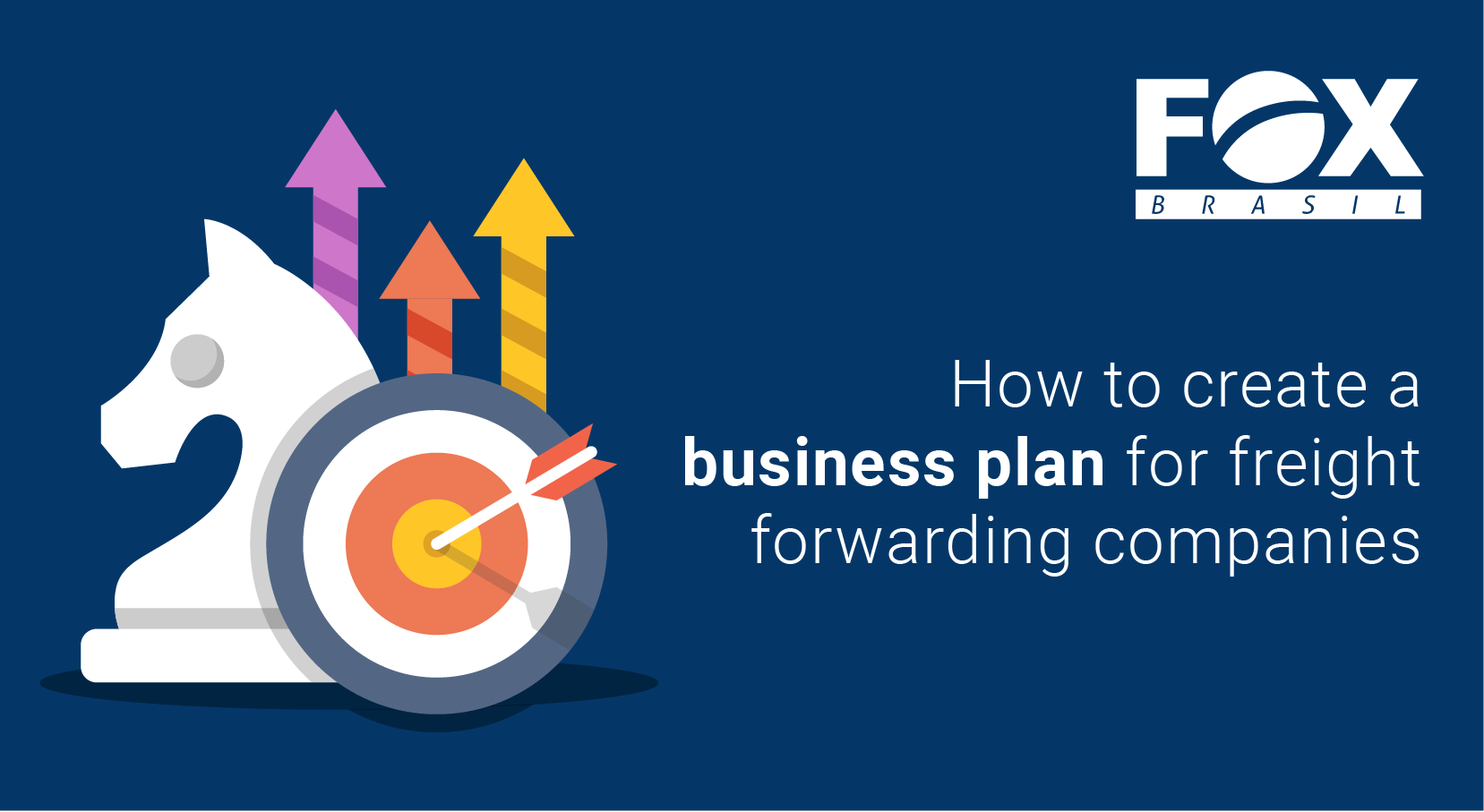How to create a business plan for freight forwarding companies

FOX Brasil Tips for Freight Forwarders
In such an overcrowded marketplace, founding a freight forwarder requires the elaboration of a thorough business plan. The business plan is a document used to describe your enterprise and the business model that supports it. This plan is the base of all freight forwarding companies, as it consists of the strategy upon which they should be shaped in order to have a successful performance.
But what are the best practices to create a winning business plan for freight forwarding companies? On this post, you can see all the steps necessary to create a complete plan for your logistics business. Check it out!
Building a business plan for freight forwarding companies
1- Market analysis
Analyzing the market is one of the most fundamental steps to prepare a good business plan. At this stage, you will define who your customers, competitors, and suppliers will be, in addition to detailing the products and services you plan on offering.
Identifying the target audience of your company is critical. It seems obvious, but it is important to remember: without customers, there is no way a company exists. Therefore, look for detailed information on who your ideal customer is, how they behave and what they seek in the marketplace.
The collection of this information can be done by means of the elaboration of surveys, interviews, and conversations with potential clients, or by competitive analysis. The information collected will indicate which direction of what future customers want. The results will dictate the actions of promotion and marketing for the company to win the public right at the beginning of the action. The entrepreneur can look for specialized companies to accomplish this task.
2- Quality and cost-effectiveness
After tracing the profile of your business’ target audience, it is important to think about the positioning of the services you’ll provide. Think about how you want your services to be seen by the international market in order to be chosen over your competitors. What does quality and cost-effectiveness mean for them?
The more specific market data you gathered in the first stage, the more knowledge you’ll have over the skills you need to develop in order to establish your business in the market.
3- Operational plan
Once the stages of gathering data and brainstorming are over, it is time to know the best way to execute your business plan. This is when the elaboration of an operational plan comes into play.
The operational plan describes how your freight forwarding company will be structured: location, physical facilities and equipment. You should also make estimates about your company’s productive capacity and how many operations you can develop per month. In addition, you should outline the amount of employees needed and the tasks that each one will have in your business.
4- Financial projections
It is also extremely important to find out if your business is financially viable. When it comes to financial terms, you should have a sense of how much should be invested to get your business started, considering aspects like rent, worforce, equipment and registration fees. You should also stipulate the capital necessary for your company to operate in the long term, making a balance between variable/invariable expenses and the expected revenue.
At this point, the immediate need for each professional/equipment/facility must be observed, and you can even consider if some of them can be outsourced.
We hope the content was useful to you! By accurately following all these steps, you will have a much more solid ground to start your forwarding business.
And if you wish to access another interesting logistics content, click here and check out the key competencies a business or professional in this area should master!